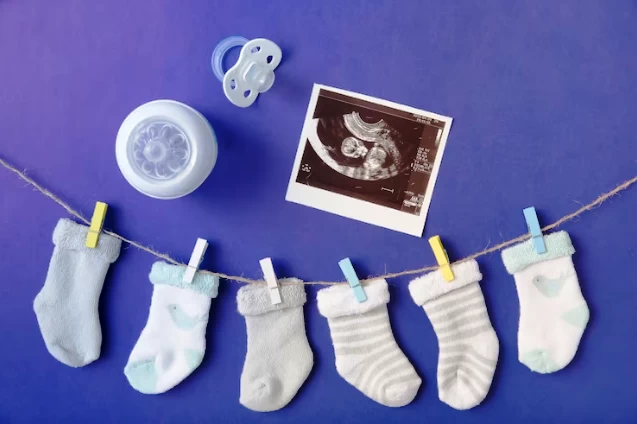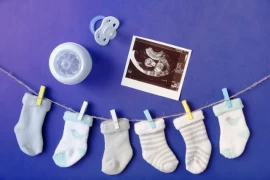
Newborn Period and Concerns for Parents
- Newborn Period and Concerns for Parents
- Introduction
- The Newborn Period
- Postnatal Screening
- Will I Produce Enough Milk?
- Baby Care
Introduction
Every baby represents a miracle the moment they come into this world. Despite thousands of babies being born every day, this event is far from ordinary. As a pediatrician who has witnessed these moments, I consider newborn care to be of utmost importance. During these special and initial moments, the greatest concern for parents is the responsibility of meeting all the needs and care of this wonderful being, as well as the complete dependency and vulnerability of the baby on the parents. Both before and after this period, we doctors and the healthcare community will always be your greatest supporters. I am writing this to provide support and reassurance to mothers of newborn babies. If, after reading this, you feel a reduction in your anxieties as a parent, then this article has achieved its purpose.
The Newborn Period
The period from the first hours of birth to 28 days encompasses the most delicate and crucial care needs. This phase includes the time when babies are most vulnerable to external factors and also when parents are trying to adapt to this new experience. The challenges during this period may occasionally raise concerns for parents, and overcoming these challenges can be a difficulty.
Following birth and upon leaving the hospital, if no issues concerning the baby are identified during the initial assessments conducted by doctors and nurses, your baby will likely continue its life in a healthy manner. After birth, your baby is placed under a pre-warmed incubator. At this stage, the baby's initial care and evaluation are carried out, and the baby receives its first Hepatitis B vaccine.
To prevent bleeding problems, your baby will receive a Vitamin K injection. Additionally, the baby's footprint is taken to distinguish it from other newborns. Before leaving the hospital and at your family doctor's office, your baby's heel blood is tested for certain diseases.
Postnatal Screening
After your baby is born, a screening for five different diseases is conducted in our country using 1 ml of blood obtained from the heel during the examination. These diseases are as follows:
- Congenital hypothyroidism
- Biotinidase deficiency
- Cystic fibrosis
- Congenital adrenal hypoplasia
- Phenylketonuria
This screening aims to detect these diseases early on in babies, which may not be noticeable initially but could potentially impact their lives negatively later on. These diseases can generally be treated with minor interventions, allowing babies to lead a normal life. However, delaying this screening until a certain age increases the risk of babies with these conditions facing serious health problems in the future. For instance, if congenital hypothyroidism is detected through the heel blood test and the baby receives a simple medication, they can lead a healthy life like any other child; however, children who do not receive this medication may experience significant issues such as intellectual disability.
Furthermore, it is important to evaluate newborns for hearing, vision, and hip dysplasia immediately after birth.

Will I Produce Enough Milk?
One of the biggest concerns for mothers is whether they will be able to feed their baby sufficiently. First and foremost, it's important to note that a newborn baby's stomach capacity on the first day is about the size of a cherry. By the end of the first week, the stomach capacity increases to that of an apricot, and at one month old, it reaches the size of an egg. Therefore, even a single drop of milk passing through your baby's stomach right after birth is extremely valuable. Especially during the first five days, the colostrum phase, a special form of breast milk, is present and is highly valuable.
Colostrum is the baby's first vaccine and the milk type that supports the immune system the most. It's quite normal for milk production to be limited initially. To increase milk production, you should aim to drink 3 liters of water daily. Water intake should be divided, with 1 glass before and after breastfeeding. Additionally, to improve milk quality, you should consume foods such as meat, fish, eggs, cheese, and yogurt. To increase milk quantity, you can incorporate foods like dried apricots, figs, dates, prunes, and bulgur into your diet. You should continue to breastfeed your baby every 2 to 3 hours, even during the night, aiming for feedings every 3 hours in the early days. The best way to know if your baby is getting enough is to monitor weight gain. Babies may lose weight during the first week, but babies born on time usually return to their birth weight within the first 10 days. Another way to determine if your baby is getting enough is by checking if they fill their diapers 4 to 5 times a day. If you notice red or orange spots in your baby's diaper, it may indicate insufficient feeding, and you should consult your doctor.
Baby Care
After babies are born, they rely on their parents for all kinds of care and support. One of these needs is caring for the umbilical cord until it falls off. For umbilical cord care, there is no need to apply anything or squeeze the cord. Keeping the umbilical cord dry is sufficient. You can clean the umbilical cord with cotton swabs and keep it dry. You can also give your baby a bath before the umbilical cord falls off. In hot summer days, you can give daily baths. Parents don't need to use shampoo in every bath. In winter months, giving baths twice a week will be sufficient for the baby. If your baby's nails are long after birth, you should trim them as soon as possible. If nails are left untrimmed and become long, they can break. Trimming nails evenly will be sufficient. Gloves should be removed from the baby's hands when they are 15 days old to promote hand coordination and the development of the sense of touch. Natural herbal baby oils designed for babies can be used to help babies relax and reduce gas pains. From the moment of birth until they are one month old, after breastfeeding, you can hold your baby in an upright position for a few minutes and gently stroke their back to help release gas.






